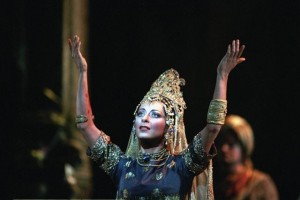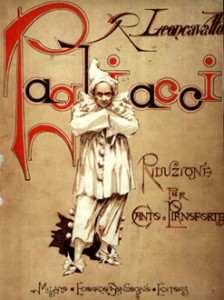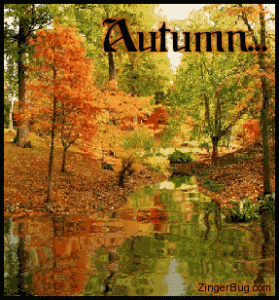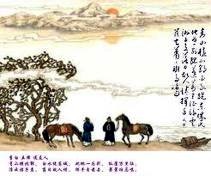少年听雨歌楼上,红烛昏罗帐。壮年听雨客舟中,江阔云低,断雁叫西风。
而今听雨僧庐下,鬓已星星也。悲欢离合总无情,一任阶前,点滴到天明。
Tune: Lady Yu the Beauty Jiang Jie (13th Century)
Listening to the rain
[Tr. YK Chan 陈耀国译] 
When young listening to the rain as songs were sung on the floor above,
From crimson candles smoke lingered onto the canopied bed of love.
When I travelled middle-aged, listening to the rain on a passenger boat,
Above a river wide clouds hung low,
A lost goose cried as the chilly west wind blowed.
Now listening to the rain at the monk’s lodge,
My hair has speckled and scattered without dodge,
Sadness and happiness, separation and reunion impassion me no more.
The rain pours on the terrace galore,
then drizzles until dawn.
————————-
Note: Joseph Needham (1900-95), “The Man Who Loved China” (a biography by Simon Winchester http://www.youtube.com/watch?v=b1j2zs4Xwqk), translated this poem with the help of his friends thus:
As a young man, listening to the girls in a tower
I heard the sound of the rain,
While the red candle burned dim in the damp air.
In middle age, travelling by boat on a river,
I listened to the rain falling, falling;
The river was wide and clouds drifted above;
I heard the solitary cry of a teal borne on the west wind.
And now in a cloister cell I hear the rain again,
My hair is grey and sparse;
Sadness and Happiness, separation and reunion, all seem one,
They move me no more.
Let the rain drop all night on the deserted pavement
Till the day dawns.
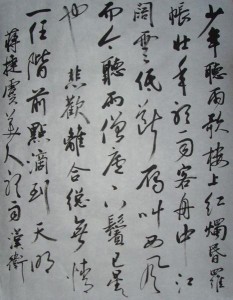





 e Queen of the Night (soprano) puts a knife into the hand of her daughter Pamina and exhorts her to assassinate Sarastro, the Queen’s rival, on pain of denying and cursing Pamina if she does not comply. “The Queen of the Night Aria” is considered to be one of the most famous opera arias, highly memorable, fast paced and menacingly grandiose. (
e Queen of the Night (soprano) puts a knife into the hand of her daughter Pamina and exhorts her to assassinate Sarastro, the Queen’s rival, on pain of denying and cursing Pamina if she does not comply. “The Queen of the Night Aria” is considered to be one of the most famous opera arias, highly memorable, fast paced and menacingly grandiose. (

